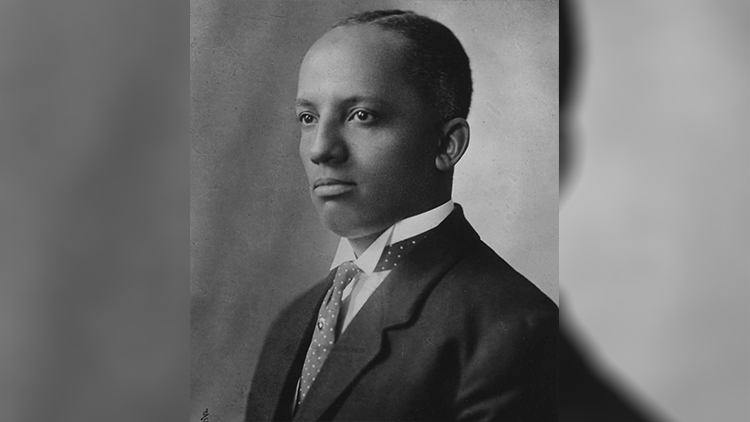
Black History Month started in 1970, proposed by African American educators and students at Kent State University. But long before the month was proposed, Dr. Carter G. Woodson founded a week to honor contributions that African Americans made to U.S. history.
Carter G. Woodson was born in Virginia. His parents Anne and James were formerly enslaved people. They could not read or write, but Woodson’s father insisted that Carter strive to learn. It was difficult, because Carter had to help on his family’s farm, which caused him to miss a lot of school. But by the time he was seventeen years old, Carter had taught himself how to read and write. He and his brother moved to Huntington, West Virginia, hoping to attend high school there. Yet again, Carter needed to work rather than attend school, this time as a coal miner. Finally, he entered high school at the age of 20. It took him less than two years to graduate.
From there, Carter Woodson began a career in teaching. He eventually become the principal of the high school from which he graduated. Later, he traveled all over the world, supervising schools in the Philippines, studying in Paris, earning a master’s degree at the University of Chicago, and finally earning a doctorate in history from Harvard.
Dr. Woodson approached history in a unique way. He believed that history was not merely facts about the past, but also the stories of people and groups who contributed to change. He and his friends founded an association in 1915 to focus on contributions of African Americans. A year later, Woodson founded a journal to record the history of African Americans. In 1926, he developed a week to celebrate the history of African Americans. Dr. Woodson’s hope was that a time would come when all Americans would recognize the contributions of African Americans and realize how important those contributions were to our history.
What Do You Think? Dr. Woodson once said, “Those who have no record of what their forebears have accomplished lose the inspiration which comes from the teaching of biography and history.” Explain this quotation in your own words. What do you think is important about learning history?
Photo Credit: U.S. National Park Service



